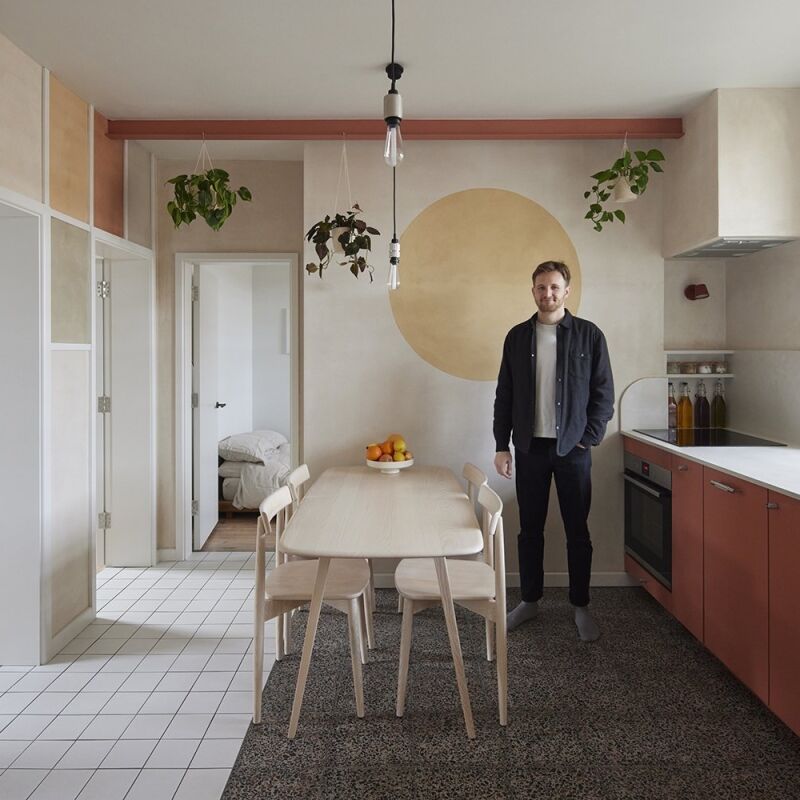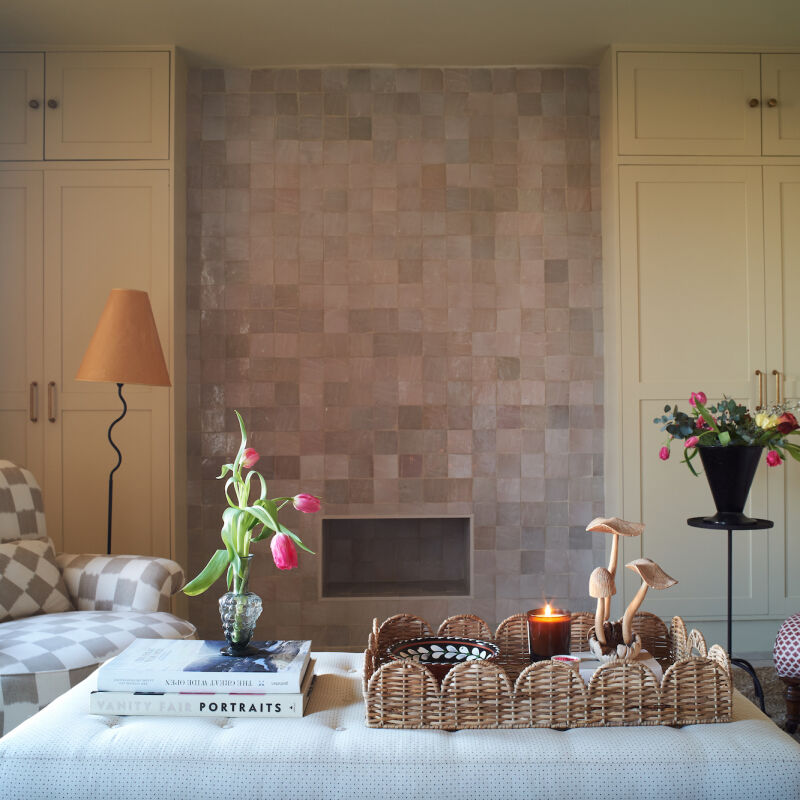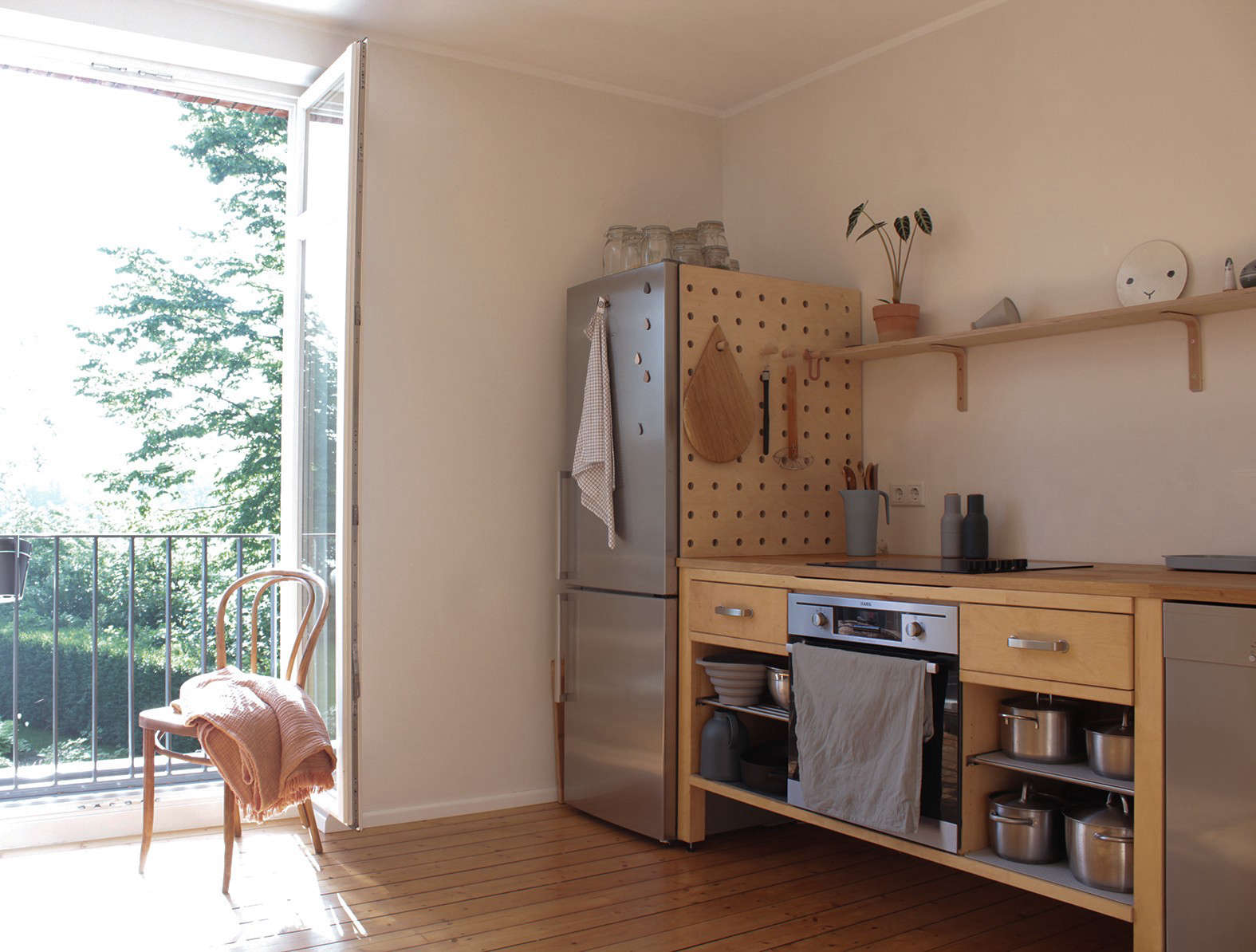When architect Cary Bernstein’s client moved into a 1900s cottage in San Francisco’s Potrero Hill neighborhood, he was a bachelor; after his life expanded to include a wife and three young children, the house took the leap as well.
The modest shingled cottage never had pretensions to a particular style, and in the course of the last century, had remained half-hidden behind trees on a wooded lot. It was this low-key presence that Bernstein, who is a member of the Remodelista Architect/Designer Directory, was careful to preserve in her extensive renovation of the house. “The trick was to keep some of the quirkiness of the cottage, and to add our own layer of history,” says Bernstein. “We expanded up, adding a third floor, to avoid interrupting the garden surrounding the house.”
Photography by César Rubio.

Above: Bernstein transformed the cottage into a light-filled modern house. From the street, it appears to be two stories; the first floor steps down the hill behind. The original Dutch door is still in place (now painted black).

Above: The front yard and its curved wooden bench were left untouched during the renovation.

Above: Adding a third floor did not require any extraordinary measures, thanks to a solid foundation and strategic choices by Bernstein, who used external steel framing to brace the house. A frame around the double-height windows (at left) and a trellis over the front door that anchors the house to a shed are key structural supports.

Above: The original ceiling, with its mix of planking in three different sizes, became the inspiration for the new faí§ade. The flooring is reclaimed oak barn siding.
Above: The minimalist island is made of walnut butcher block–”We like to design islands as pieces of furniture, rather than looking like wall cabinetry that managed to float away,” says Bernstein. A Blu Dot Knicker Chair is at the built-in desk.
Above: To the left of the front door is a side entry that goes straight into the kitchen; the breakfast nook has a built-in bench for shoes. Around Naoto Fukasawa’s Déjí -Vu Table are classic Jacobsen Style Series 7 Chairs.

Above: The stairs are recognizably old-fashioned in shape, but the railing has been reinterpreted with modern steel spindles.
Above: The third-floor study off the master bedroom takes you up into the trees. The chair is a faithful copy of Hans Wegner’s CH25 Chair.

Above: The top-floor deck has a view of the Bay Bridge to the east. The outdoor furnishings are from Ikea.

Above: The front yard serves as an outdoor dining room.
For another urban house designed to work for all stages of life, see Modern, Sustainable, and Adaptable (for $117 per Square Foot.) Looking to hire an architect? Consult the Remodelista Architect/Designer Directory, and get inspiration by exploring our vast Photo Gallery sorted by architects, locations, and building styles.
N.B.: This post is an update; the original story ran on February 26, 2012 as part of our issue, Wabi-Sabi Week.
Cary Bernstein talks workplace design in The Architect Is In: The Secrets of Workplace Design. If you’re looking for an architect or a designer see our member listings in the Remodelista/Architect Designer Directory. And if you’re thinking about your patio, Hardscaping 101: Brick Patios on Gardenista is a good place to begin.










Have a Question or Comment About This Post?
Join the conversation (0)